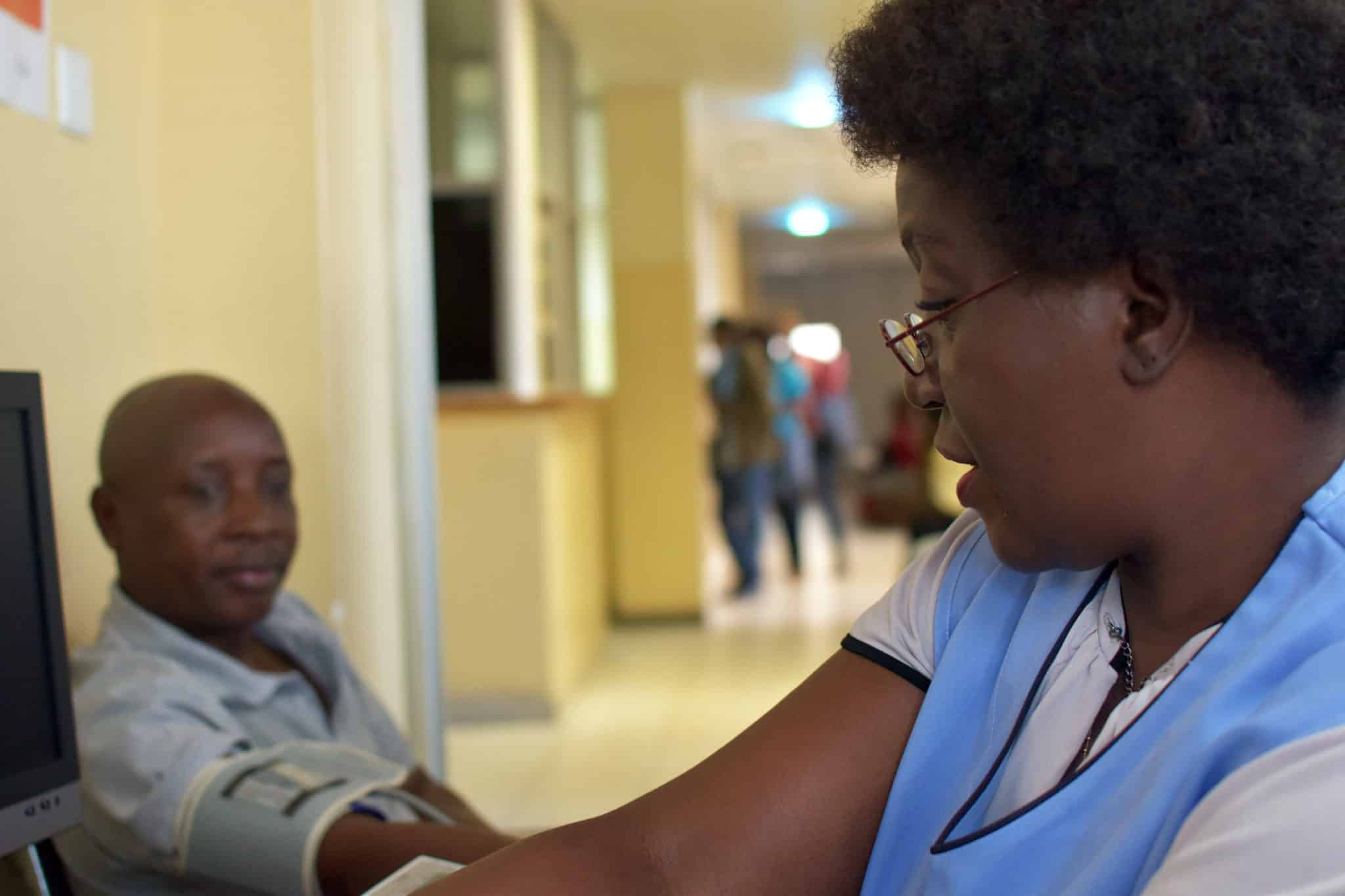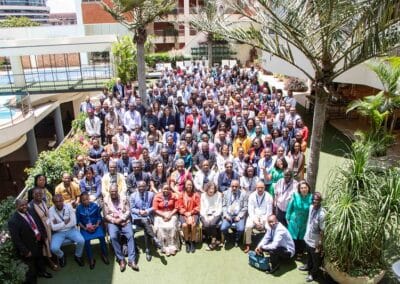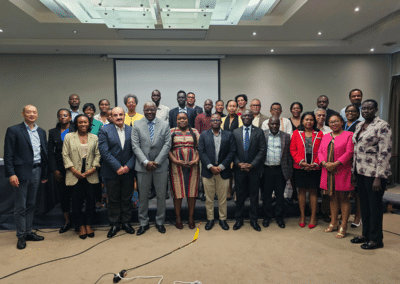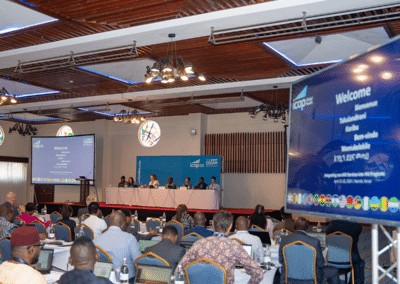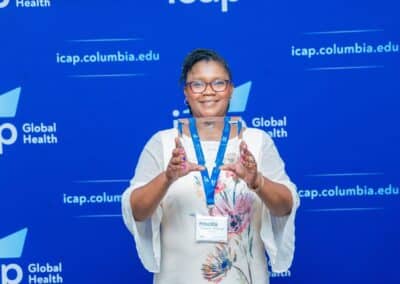On a cool Friday morning before dawn in late March, people being treated for HIV wait outside the entrance of the Adult Infectious Disease Center at the University Teaching Hospital in Lusaka, Zambia. They’ll soon receive screening and medication, long before crowds accumulate and traffic sets in on the surrounding roads.
These early morning antiretroviral therapy (ART) refills are an option that recipients of HIV care in Zambia didn’t have just a few weeks prior.
For one local entrepreneur, the ability to access services so early is a game-changer. “I work for myself, so for me to spend an entire day at the clinic affects my ability to make a living,” he said. “I’m now able to come here as early as 5:00 a.m. to get the services I need, and it’s a noticeable improvement. I’m in and out in about less than 20 minutes, and I won’t have to pick up medication for another six months.”
Supporting countries to scale up differentiated service delivery (DSD) is a focus of the HIV Coverage, Quality, and Impact Network (CQUIN), which fosters south-to-south learning about DSD among countries in sub-Saharan Africa.
That’s why in June 2018, CQUIN supported a team from the Zambia Ministry of Health to participate in a south-to-south learning exchange hosted by the Eswatini National AIDS Program (ENAP) and ICAP in Eswatini. The team from Zambia visited two hospitals in Mbabane to learn about and observe Eswatini’s early morning refill model. What they saw was a revelation: a simple, innovative way to improve DSD services for people with well-controlled HIV, by creating a new, early morning fast-track.
The Zambian visitors quizzed their hosts about how the model worked, and about the perspectives of people on ART and of health care workers on the early morning clinic. Seeing the model in action—and speaking to the implementers about both policies and practicalities—convinced the visitors that this was a good model to bring home to Zambia.
After the south-to-south visit, the visiting team shared what they had learned, and Zambia’s Ministry of Health integrated the early morning refill model into their National DSD Guidelines. The approach has just been launched at the University Teaching Hospital (UTH).
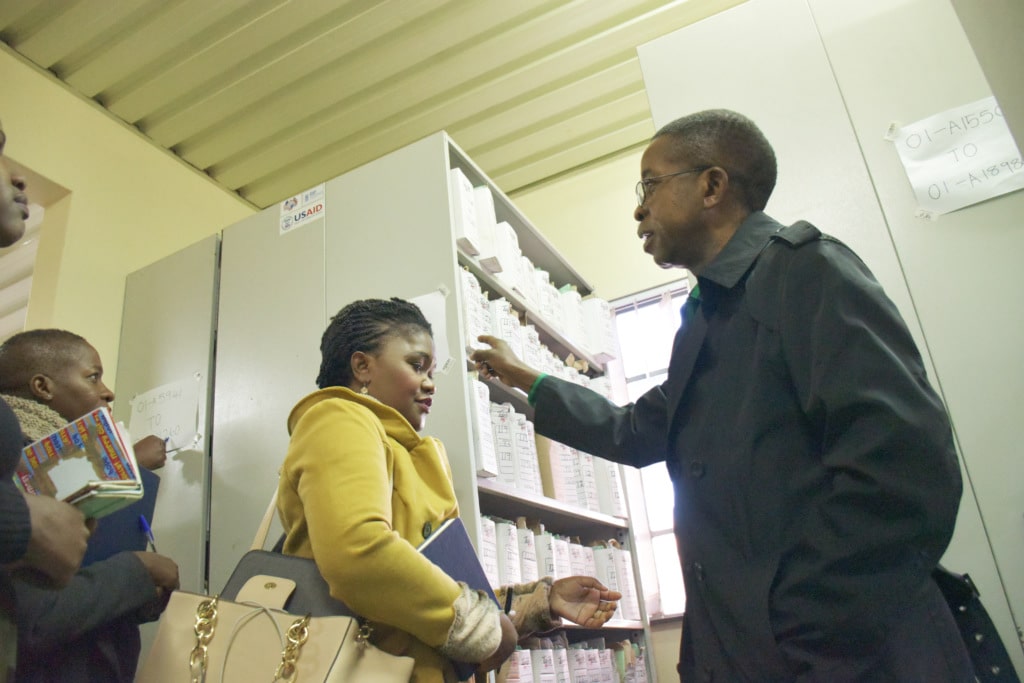
The Zambia team tours the Mbabane Government Hospital where early morning refills take place in Eswatini, June 2018.
Led by Sombo Fwoloshi, MD, DSD advisor for the Zambia Ministry of Health and an infectious disease physician at UTH, the process involved engaging a core team, including the ART nurse in charge, to orient staff and sensitize patients so they were well informed.
Approximately 20 people have enrolled in the model since it was launched. At each visit, a nurse practitioner checks their vital signs, screens them for TB, and, if everything is okay, sends them to the pharmacy to collect their medication. The visits are fast, efficient, and ideal for people on ART who need to get to work or school.
The health care workers implementing the model are given the opportunity to leave early if they arrive at 5:00 a.m. to accommodate patients. They can also exchange shifts.
“The patients who have started to come at 5:00 a.m. are very happy to be seen this early,” said one of the nurses. “We’re expecting excellent retention for these individuals.”
Learn more about DSD in Zambia
Learn more about CQUIN’s south-to-south visits


